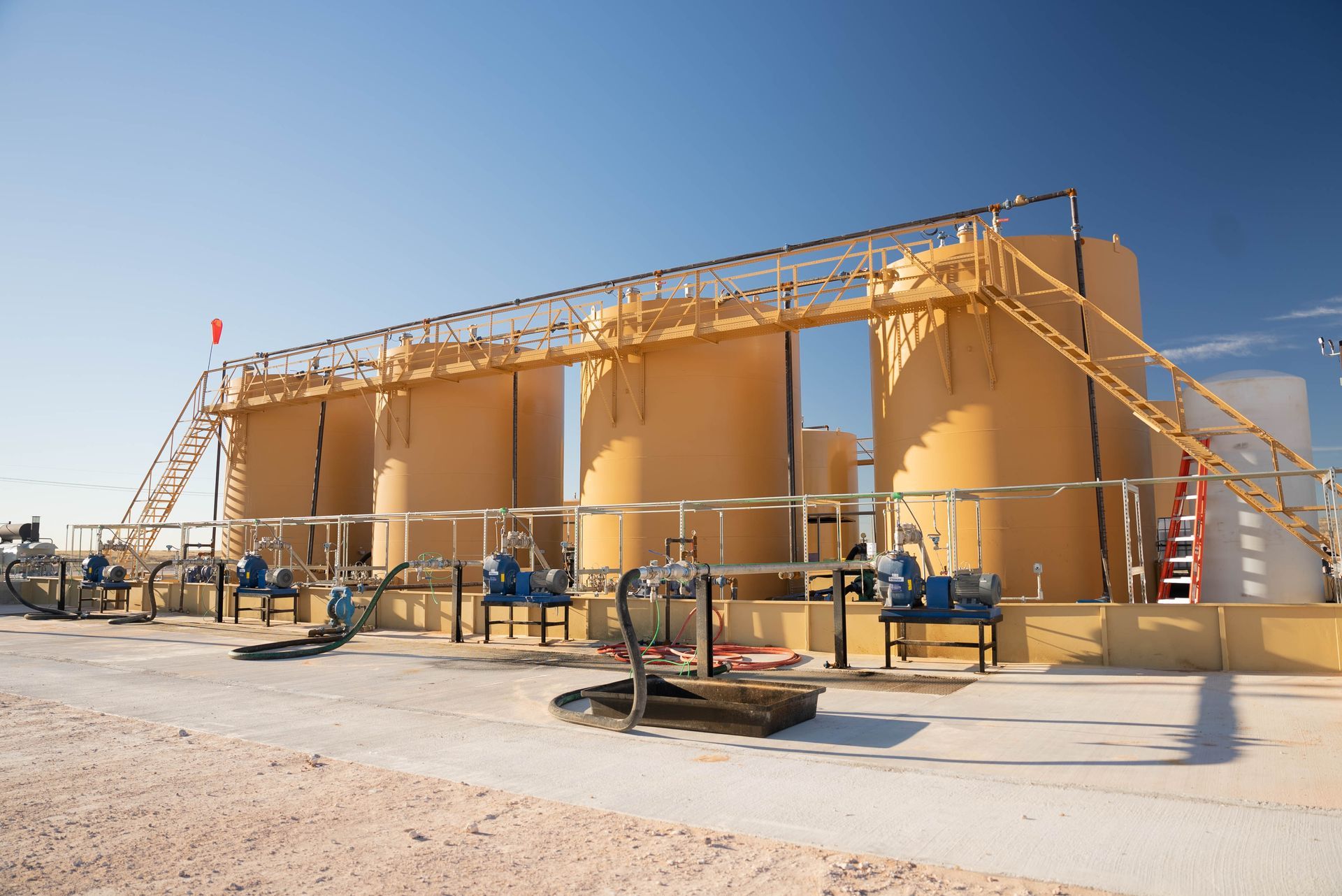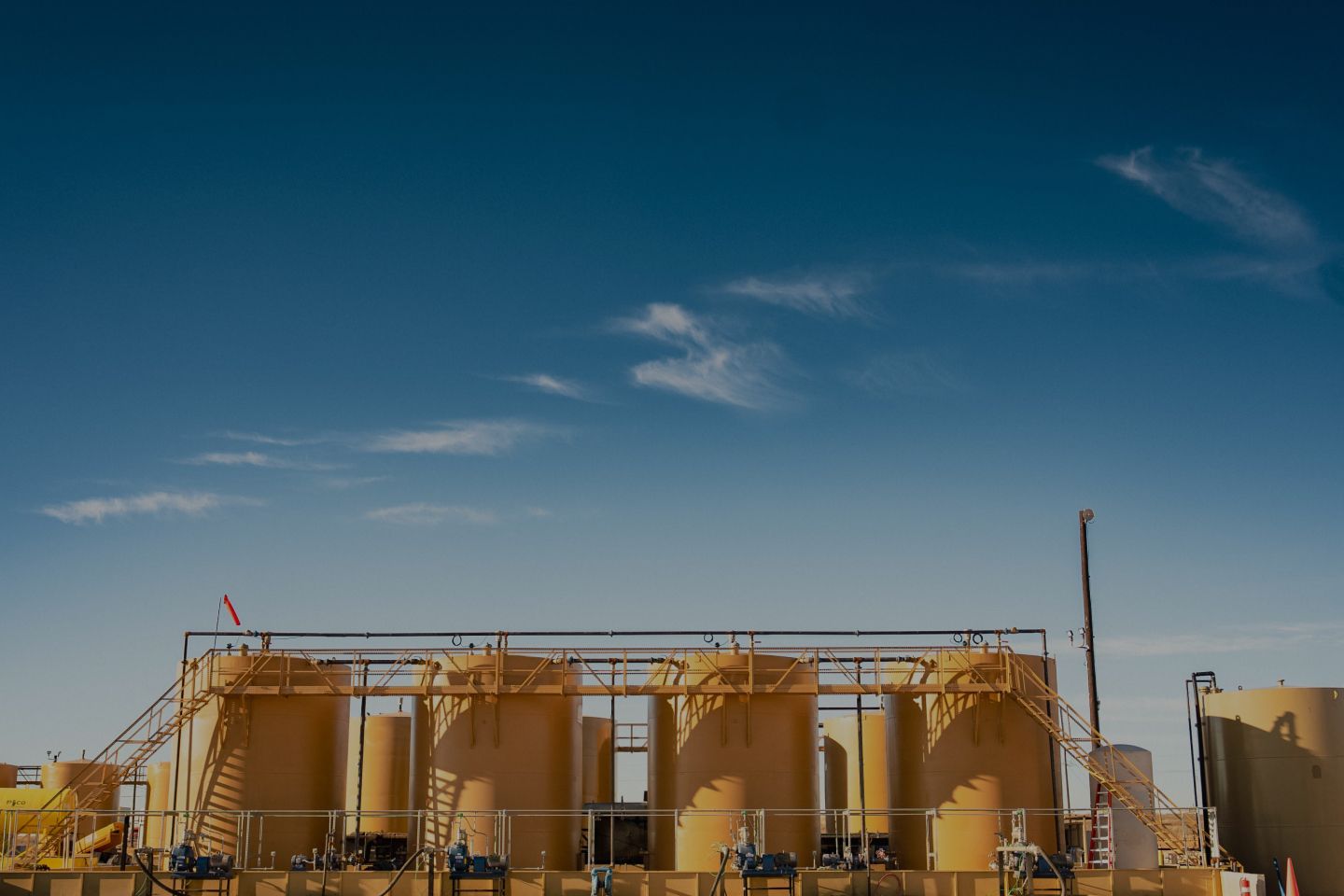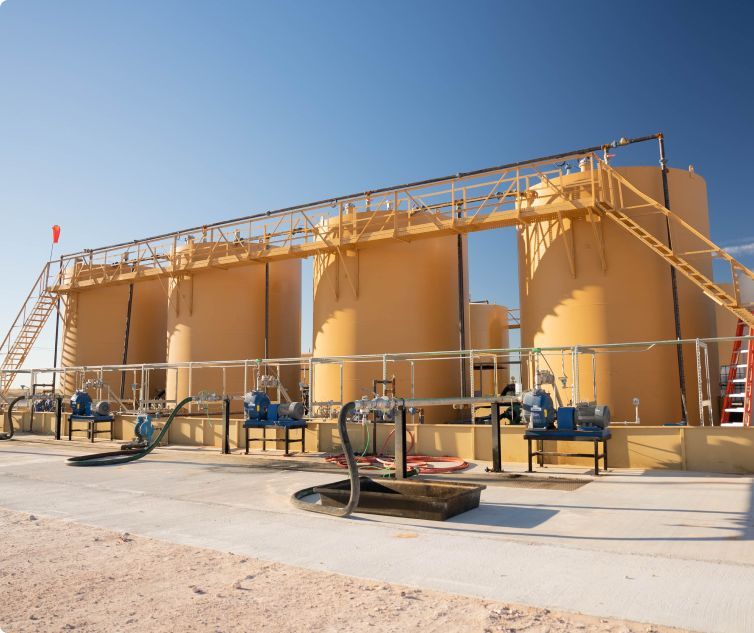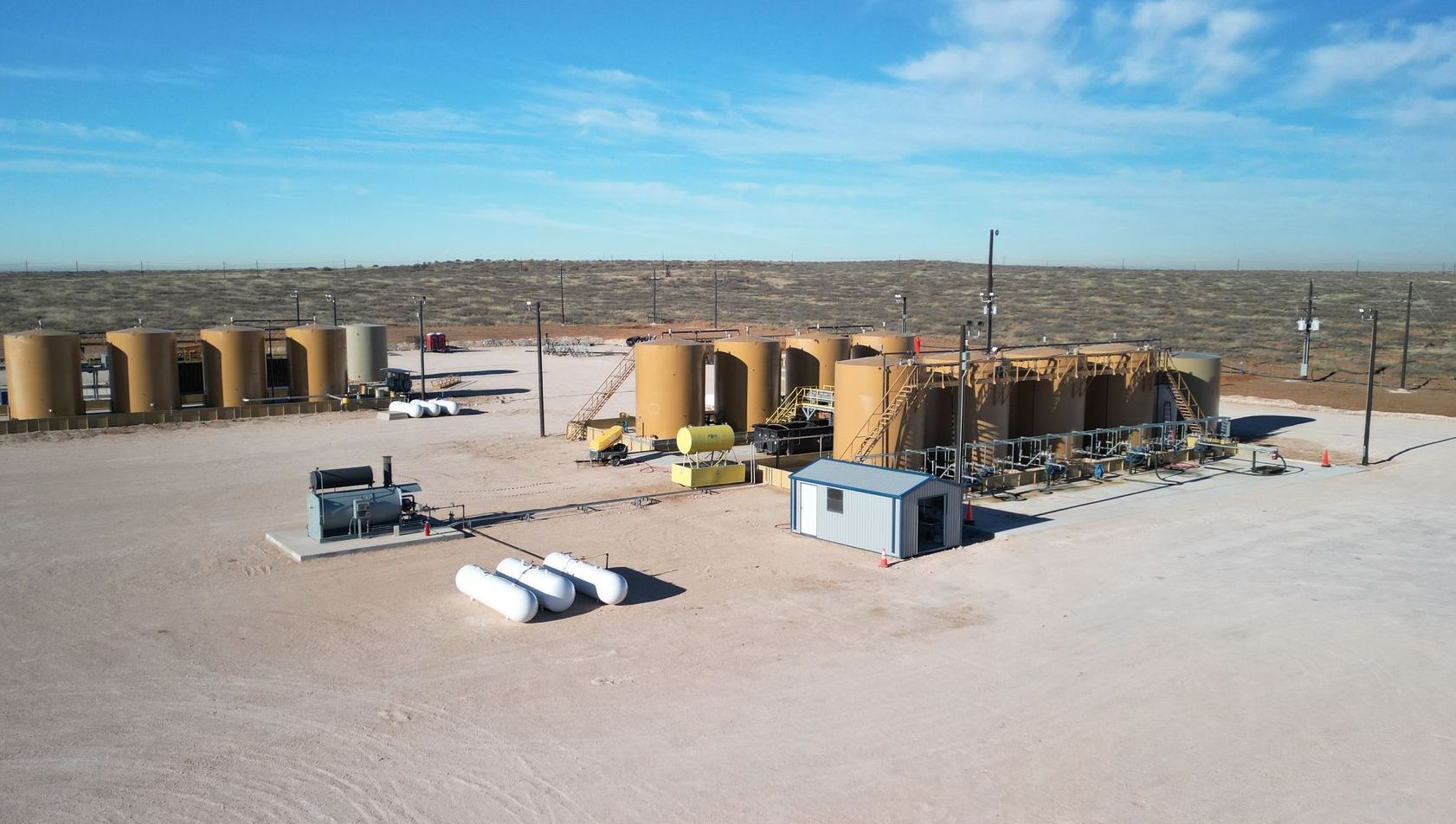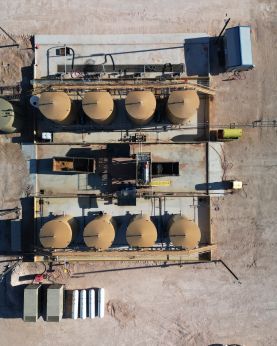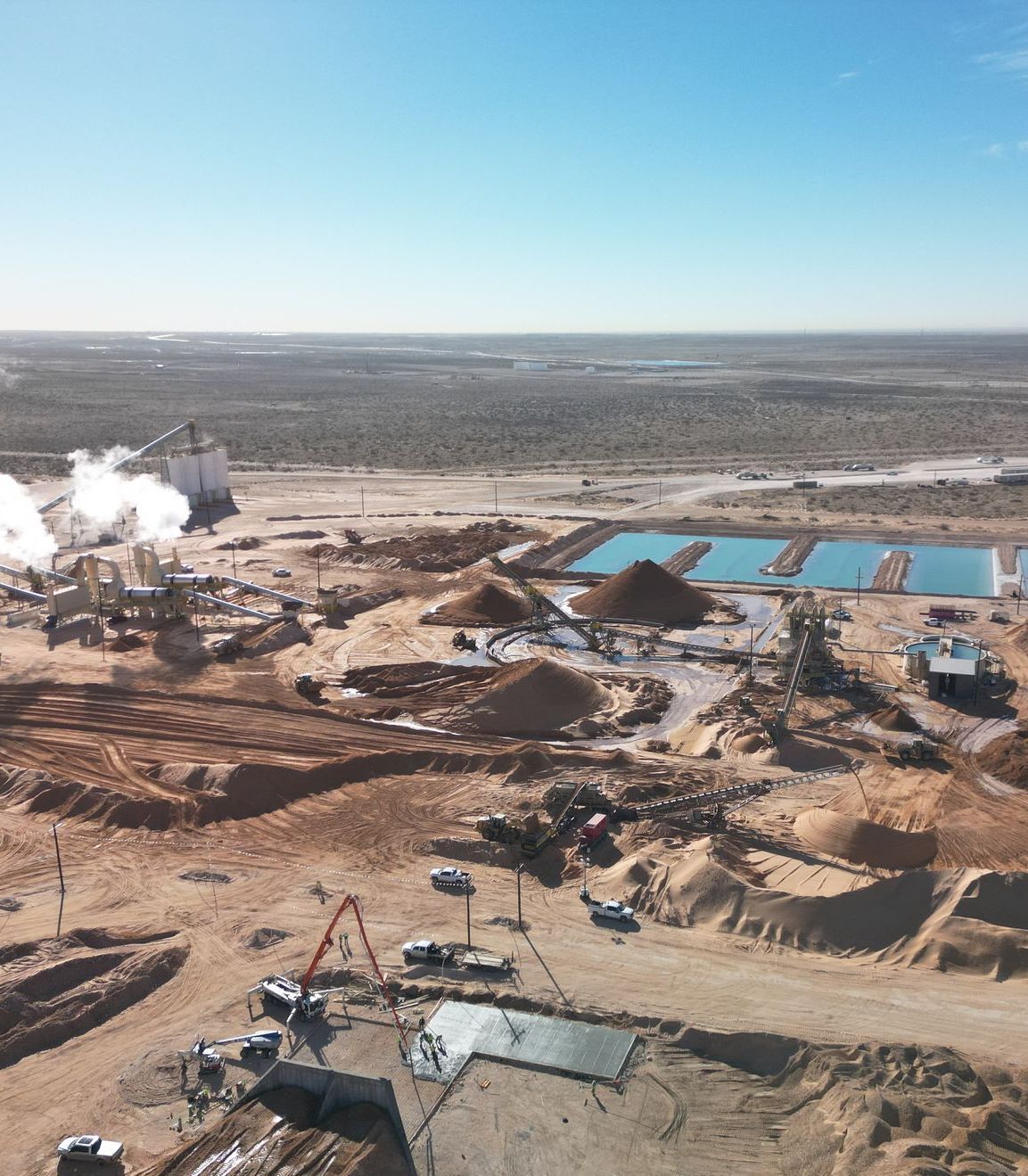Impact of Energy Waste on the Environment: Why It's Important
At Desert Environmental, we understand the critical importance of managing energy waste responsibly. As the world grapples with escalating exploration and production (E&P) activities, the need for environmentally conscious waste management practices has never been greater. Energy waste, if not handled properly, poses significant risks to our environment, economy, and communities.
In this blog, we'll explore the profound impact of energy waste on the environment and why it is crucial to reduce it. We’ll delve into the sources and consequences of energy waste and highlight the vital role Desert Environmental plays in mitigating these issues through sustainable practices. Our mission is to lead the way in sustainable waste management, adhering to modern Environmental, Social, and Governance (ESG) standards to exceed the expectations of the communities and industries we serve.
Understanding Energy Waste
Energy waste refers to the byproducts and residues generated during the exploration, production, and processing of energy resources. This includes a variety of non-hazardous materials such as production solids, drilling fluids, and tank bottoms. These wastes can accumulate rapidly, especially in regions with high levels of E&P activities.
Sources of Energy Waste
Energy waste originates from multiple stages of the energy production process:
- Exploration and Drilling: Drilling operations generate significant waste materials, including drilling muds and cuttings.
- Production: The extraction of oil and gas results in the production solids and other residues.
- Processing and Refining: Facilities that process and refine crude oil produce tank bottoms and other byproducts that need proper management.
- Maintenance Operations: Regular maintenance and cleaning of storage tanks and equipment also contribute to energy waste.
The Scale of the Problem
The scale of energy waste is immense, with millions of tons generated annually worldwide. For instance, in the United States alone, the oil and gas industry produces billions of barrels of waste each year. Without effective management, this waste can lead to severe environmental degradation.
By understanding what energy waste is and where it comes from, we can better appreciate the need for effective waste management strategies. Desert Environmental is committed to tackling this issue head-on, using advanced technologies and sustainable practices to minimize the environmental footprint of energy production activities.
Environmental Impact of Energy Waste
Pollution and Contamination
One of the most significant environmental impacts of energy waste is pollution. Improper disposal of energy waste can lead to the contamination of soil, water, and air. For example:
- Soil Contamination: Waste materials can seep into the ground through leaks and spills, degrading soil quality and harming plant life.
- Water Pollution: Runoff from waste disposal sites can contaminate nearby water bodies, affecting aquatic ecosystems and potentially entering the human water supply.
- Air Pollution: Some energy waste products can release harmful gases and particulate matter into the atmosphere, contributing to air pollution and respiratory issues in surrounding communities.
Impact on Wildlife and Ecosystems
Energy waste poses a severe threat to wildlife and natural ecosystems. Contaminated water sources can lead to the death of aquatic life, and polluted soil can affect the health of terrestrial animals and plants. Ecosystems can be disrupted, leading to a loss of biodiversity. For example:
- Aquatic Life: Toxic substances in water can harm fish and other aquatic organisms, leading to reduced populations and disrupted food chains.
- Terrestrial Wildlife: Animals that come into contact with contaminated soil or water can suffer from poisoning and health issues, affecting their reproduction and survival rates.
- Habitats: Pollution can alter natural habitats, making them unsuitable for various species and leading to long-term ecological imbalances.
Climate Change
Energy waste contributes to climate change through the release of greenhouse gases (GHGs). Methane, a potent GHG, can be emitted from improperly managed waste sites. Additionally:
- Carbon Footprint: The production and disposal of energy waste involve processes that emit carbon dioxide (CO2) and other greenhouse gases, increasing the overall carbon footprint of energy production activities.
- Long-Term Effects: The accumulation of GHGs in the atmosphere leads to global warming, which has far-reaching impacts on weather patterns, sea levels, and natural ecosystems worldwide.
The Importance of Sustainable Waste Management
Addressing the environmental impact of energy waste is crucial for protecting our planet. Sustainable waste management practices can significantly reduce pollution, protect wildlife, and mitigate climate change effects. At Desert Environmental, we are dedicated to implementing these practices through our advanced R9 reclamation plants and comprehensive waste management services, ensuring that energy waste is handled responsibly and sustainably.
By understanding the environmental impacts of energy waste, we can see why it is essential to reduce and manage this waste effectively. Desert Environmental is committed to leading the way in sustainable waste management and protecting our environment for future generations.
Economic and Social Implications
Economic Costs
Improper management of energy waste can result in substantial economic costs, affecting both companies and communities. These costs can include:
- Cleanup Expenses: Contaminated sites require extensive cleanup efforts, which can be incredibly costly. Companies may face significant financial burdens to remediate polluted areas and restore them to safe conditions.
- Regulatory Fines: Failure to comply with environmental regulations can lead to hefty fines and legal fees. Regulatory bodies impose strict penalties on companies that neglect proper waste management practices.
- Operational Disruptions: Environmental incidents related to poor waste management can halt production activities, leading to operational downtime and lost revenue.
Health Risks
Exposure to improperly managed energy waste poses serious health risks to workers and nearby communities. These health risks include:
- Respiratory Issues: Airborne contaminants from energy waste can cause respiratory problems, including asthma and bronchitis, especially in vulnerable populations such as children and the elderly.
- Waterborne Diseases: Contaminated water sources can lead to waterborne diseases, affecting the health of local communities that rely on them for drinking and irrigation.
- Long-Term Health Effects: Prolonged exposure to hazardous waste materials can result in chronic health conditions, such as cancer, neurological disorders, and reproductive issues.
Community Impact
The improper disposal of energy waste can have a profound impact on local communities, affecting their quality of life and overall well-being:
- Property Values: Environmental degradation can decrease property values in affected areas. Communities located near contaminated sites may find it difficult to sell properties or attract new residents.
- Livelihoods: Many communities depend on clean natural resources for their livelihoods, such as agriculture and fishing. Pollution can disrupt these activities, leading to economic hardship for local families.
- Social Tensions: Environmental issues related to energy waste can lead to social tensions between communities and energy companies. Residents may protest and demand accountability, leading to strained relationships and potential conflicts.
The Importance of Reducing Energy Waste
Reducing energy waste is essential for mitigating these economic and social implications. By adopting sustainable waste management practices, companies can:
- Lower Cleanup Costs: Proper waste management reduces the risk of environmental contamination, minimizing the need for expensive cleanup efforts.
- Avoid Fines and Legal Issues: Compliance with environmental regulations helps avoid costly fines and legal battles.
- Protect Public Health: Implementing safe waste disposal practices protects the health of workers and communities, reducing healthcare costs and improving quality of life.
- Support Community Well-Being: Responsible waste management practices help maintain property values, support local livelihoods, and foster positive relationships between energy companies and communities.
At Desert Environmental, we are committed to reducing the economic and social impacts of energy waste through our comprehensive waste management services. By adhering to modern Environmental, Social, and Governance (ESG) standards, we ensure that our practices benefit both the environment and the communities we serve.
Importance of Reducing Energy Waste
Sustainable Practices
Implementing sustainable waste management practices is crucial for reducing the environmental footprint of energy production. Sustainable practices include:
- Recycling and Reclamation: By recycling and reclaiming waste materials, we can reduce the volume of waste that ends up in landfills. Advanced reclamation technologies, like Desert Environmental’s R9 reclamation plants, efficiently process and treat waste, turning it into reusable resources.
- Proper Disposal: Ensuring that waste materials are disposed of in accordance with environmental regulations prevents contamination of soil, water, and air.
- Innovative Technologies: Adopting cutting-edge technologies and practices can minimize waste generation and improve the efficiency of waste management processes.
Regulatory Compliance
Complying with environmental regulations is not just a legal obligation; it’s a commitment to environmental stewardship. Regulatory compliance involves:
- Adhering to Standards: Following local, state, and federal regulations ensures that waste management practices meet the required environmental standards.
- ESG Standards: Embracing Environmental, Social, and Governance (ESG) standards demonstrates a commitment to sustainable and ethical practices, which can enhance a company’s reputation and attract socially conscious investors.
- Continuous Improvement: Regularly reviewing and updating waste management practices to align with evolving regulations and industry best practices ensures ongoing compliance and environmental protection.
Long-Term Benefits
Reducing energy waste offers numerous long-term benefits, including:
- Environmental Preservation: Sustainable waste management practices help preserve natural ecosystems, protect wildlife, and maintain biodiversity.
- Economic Savings: Efficient waste management can lead to significant cost savings by reducing the need for cleanup and remediation efforts, avoiding regulatory fines, and enhancing operational efficiency.
- Enhanced Reputation: Companies that prioritize sustainable waste management can build a strong reputation for environmental responsibility, attracting customers, investors, and partners who value sustainability.
- Community Well-Being: Responsible waste management practices contribute to the health and well-being of local communities, fostering positive relationships and social harmony.
Desert Environmental’s Role in Reducing Energy Waste
At Desert Environmental, we are dedicated to leading the way in sustainable waste management. Our comprehensive approach includes:
- Advanced R9 Reclamation Plants: Our state-of-the-art R9 reclamation plants process and treat energy waste efficiently, transforming it into reusable resources and minimizing environmental impact.
- Comprehensive Waste Management Services: We offer a range of services, including processing waste deliveries, treating production solids, and reclaiming crude terminal cleaning residuals. Our integrated approach ensures that all aspects of waste management are handled responsibly.
- Commitment to ESG Standards: We adhere to modern ESG standards, ensuring that our practices not only meet but exceed regulatory requirements. Our commitment to sustainability is at the core of everything we do, driving us to continuously improve and innovate.
By reducing energy waste, we can create a more sustainable future for our planet and the communities we serve. At Desert Environmental, we are committed to making a positive impact through our advanced technologies and sustainable practices. Contact us today to learn more about how we can help you manage energy waste responsibly.
Desert Environmental’s Role in Reducing Energy Waste
Advanced R9 Reclamation Plants
At Desert Environmental, our advanced R9 reclamation plants are at the forefront of sustainable waste management. These state-of-the-art facilities are designed to efficiently process and treat a variety of energy wastes, transforming them into reusable resources. Key features of our R9 reclamation plants include:
- High-Efficiency Processing: Our reclamation plants utilize cutting-edge technology to maximize efficiency in processing waste materials. This not only reduces the volume of waste but also minimizes the environmental impact.
- Resource Reclamation: By reclaiming valuable resources from energy waste, we help reduce the need for new raw materials, promoting a circular economy. This process includes reclaiming production solids and crude terminal cleaning residuals, commonly known as 'tank bottoms'.
- Environmental Protection: Our plants are designed to operate with minimal environmental impact, ensuring that waste processing is conducted in an eco-friendly manner. This includes measures to control emissions, manage waste byproducts, and prevent contamination.
Comprehensive Waste Management Services
Desert Environmental offers a comprehensive suite of waste management services tailored to the needs of the energy industry. Our services include:
- Processing Waste Deliveries: We handle waste deliveries directly from rig sites, ensuring that all materials are managed responsibly from the point of generation. Our facilities are strategically located in the northern and southern Delaware Basin to efficiently serve the region.
- Treating Production Solids: Our advanced treatment processes break down production solids into reusable components, reducing waste and promoting sustainability.
- Reclaiming Crude Terminal Cleaning Residuals: We specialize in the treatment and reclamation of crude terminal cleaning residuals, ensuring that these byproducts are processed efficiently and safely.
Commitment to ESG Standards
At Desert Environmental, we are deeply committed to Environmental, Social, and Governance (ESG) standards. Our adherence to these standards reflects our dedication to sustainable and ethical business practices. This commitment includes:
- Environmental Stewardship: We prioritize environmentally friendly practices in all aspects of our operations, from waste processing to resource reclamation.
- Social Responsibility: We engage with the communities we serve, ensuring that our operations benefit local populations and do not negatively impact their health or environment. We strive to build positive relationships and contribute to community well-being.
- Governance Excellence: We maintain high standards of corporate governance, ensuring transparency, accountability, and ethical conduct in all our business practices. This includes regular audits, compliance with regulations, and continuous improvement of our waste management processes.
Leading the Way in Sustainable Waste Management
Desert Environmental is proud to lead the way in sustainable waste management for the energy industry. Our innovative approaches and advanced technologies set us apart as a trusted partner for environmentally conscious waste management. By reducing energy waste and promoting sustainability, we contribute to a healthier planet and a brighter future.
Join Us in Reducing Energy Waste and Promoting Sustainability
Are you ready to join us in reducing energy waste and promoting sustainability? Contact us today to learn more about our comprehensive waste management services and advanced reclamation technologies. Visit our website or give us a call to schedule a consultation and discover how we can help you manage energy waste responsibly and efficiently. Let’s work together to protect our environment and create a sustainable future.

© 2024 Desert Environmental | All Rights Reserved. Website by Roundhouse.

